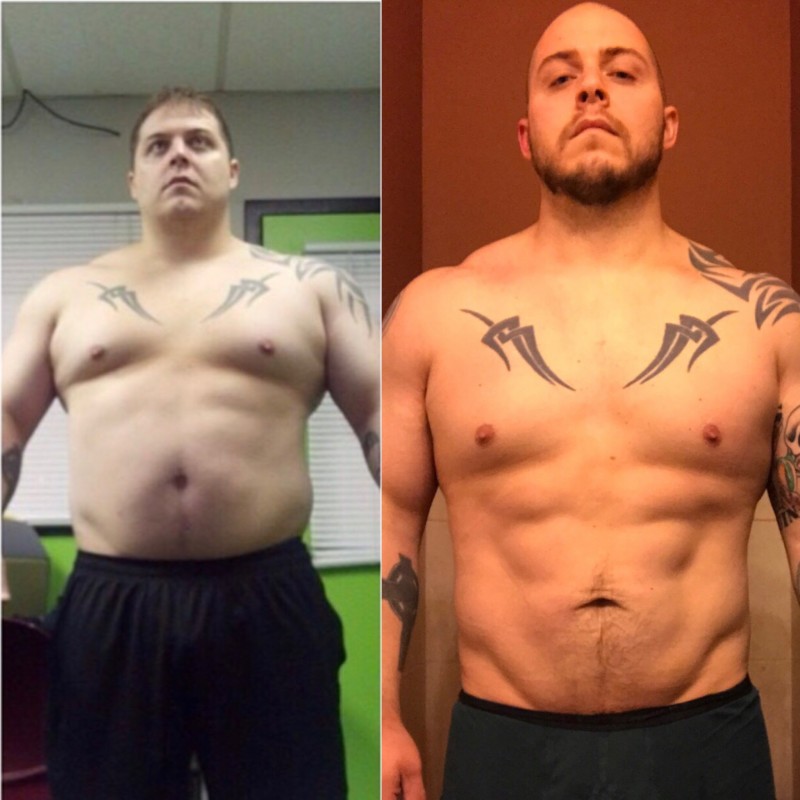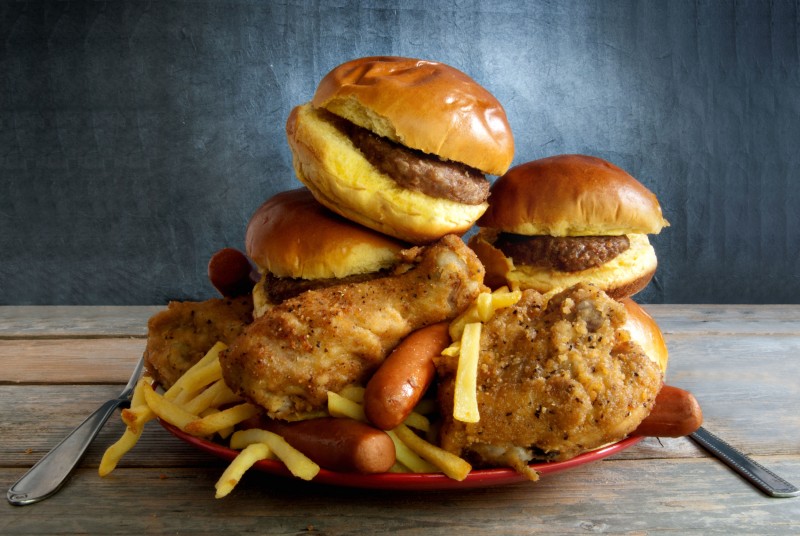
When you begin to see results with any sort of body recomposition plan, you’ll undoubtedly be inundated with questions about your food choices, the torture you’re going through with food restriction, and, of course, what your cheat meals look like. Often times, people are shocked when I tell them I do not have any planned cheat meals. Zero. Zilch. As I am approaching my 29th week of this body recomp, I have had no planned cheat meals. Last time I did a body recomp, I went over 100 weeks without a planned cheat meal. This might sound crazy to a lot of people—and extremely restrictive—but there is a method to the madness, and it’s nowhere near as bad as it sounds.
RELATED: Considerations for Strength Athletes Losing Weight
The psychological aspect of dieting is just as if not more important than the actual execution of a plan. The first step to overcoming some of the hurdles in a diet is to get rid of the negative relationships people have with food. We’ve been bombarded with the idea that one food is better or worse than another, but by vilifying or crediting certain foods we tend to miss the whole picture. Are there times where restriction of a food may come in handy? Absolutely, but that is usually for a medical purpose, or when someone is going from very lean to super lean. However, when our intentions are performance-based body recomposition for someone who has a lot of body fat to lose, we need to take a macroscopic view rather than a microscopic view.
Photo credit: pixelbliss © 123RF.com
To execute the macroscopic plan, first, we have to come to the realization that there are no bad foods. Outside of allergies, any food that you can eat without discomfort or allergic reaction is neither good nor bad. It is food with a macronutrient profile and calories. That’s it. When we classify food as “bad”, we’re creating a negative relationship with that food. Even worse, now we make that food taboo, which in turn can make it more desirable and even more damaging when we gorge on said food. If we instead look at a food as nothing more than a means to an end when consuming overall calories, now we just have a tool at our disposal.
Conversely, when we look at a food as “good”, we have now put it on a pedestal. Instead of wanting to eat that food, it becomes, “I have to eat that food.” You don’t have to eat anything. There are no wrong or right choices within the confines of your daily caloric intake and macronutrient profile.
So how does this tie into cheat meals? The entire philosophy is a purge-binge dynamic. We restrict “bad” foods for “good” foods, with the ever-looming idea of a reward for our good behavior after a given time period. This compounds any negative relationships we may have with food choices we’ve already deemed as “bad." While it may be an awesome experience while we’re eating them during a cheat meal, the inevitable depression that seems to follow can be compounded by someone “going off the rails.”
How do we combat this? Instead of “cheating” on our diets, we develop a long-term plan, understand what we’re eating, how much we’re eating, and track what we’re eating. That means food scales, measuring cups, tracking apps, and anything else that can help you understand how much of a food you’re eating. This may be unappealing to a lot of people, as it looks like work, but knowing exactly how much of something you’re eating opens up a whole new world of possibilities, and doesn’t put limits on what sort of foods you can eat.
Tracking and measuring also help people understand the relationship between food volume and caloric density. Just off the top of my head, a pint of Ben and Jerry’s Half Baked frozen yogurt is 812 calories but isn’t very satiating. I will often eat one right around training on a high carb day, however, because I can eat it and it doesn’t sit in my stomach all day. Conversely, on my low carb and low-calorie days, I can make meals that won’t break 300 calories but will keep me full for hours. Often times, my low calories days are harder to get through than a high carb and high-calorie day for that very reason.

From 320 pounds to 242 pounds
Once people figure out that concept, the next question I hear a lot is, “What about the big meals?” This question is really about foods they want to eat that wouldn’t fit into their daily caloric total for the day. There is a very simple answer for that: eat them when it is deemed acceptable, not when it is a reward for your restriction. Holidays, dates, visiting friends, vacations, etc., are all valid social interactions that often revolve around food. Eat the food you want during those times and take away the guilt. However, this may mean that you went six weeks without eating a ribeye and loaded baked potato, but since you know how to track your food, you weren’t eating tilapia and asparagus that whole time.
Will we see a fluctuation in our weight the next day? Sure. Will that fluctuation be permanent? If you haven’t created a negative relationship with that life event and the food wasn’t a reward but rather just a part of being around friends and family, probably not. I know in the past 29 weeks I’ve personally hit a 10-pound increase after going out to dinner with friends, but that always eventually drops back down after a week or so of staying on the plan. And that plan also includes some of my favorite foods because they fit into the rubric Dr. Kashey and I have created for sustainability.
MORE: Energy Budget: Why You Can’t Exercise Your Way to Weight Loss
Now, if you spend all week eating food you don’t enjoy—food that you need to throw an entire bottle of hot sauce on just to make it palatable—in the hope that at the end of the week you get to have one little sliver of enjoyment, your approach isn't sustainable and will inevitably lead to reverting back to your old ways. Remember, this is changing your habits for a lifetime of sustainability, not just a 16-week crash course.
Are there people who can go the classic route of purge-binge cheat meals for prolonged periods of time? Sure, there are, but they are usually up on the main stage at the Arnold and Olympia. I am not one of those people, and chances are, neither are you. That doesn't mean you are doomed.
In the five years that I have been working with Dr. Trevor Kashey, I have learned an extensive amount about dieting. Dr. Kashey guides people through their dieting experience not only by outlining a plan but also by helping them understand the relationship between themselves and the foods they eat by recognizing patterns that may lead to binging and purging. His holistic lifestyle approach that is applied to both the general population and athletes alike helps his clients achieve the best possible results in the least burdensome manner.











